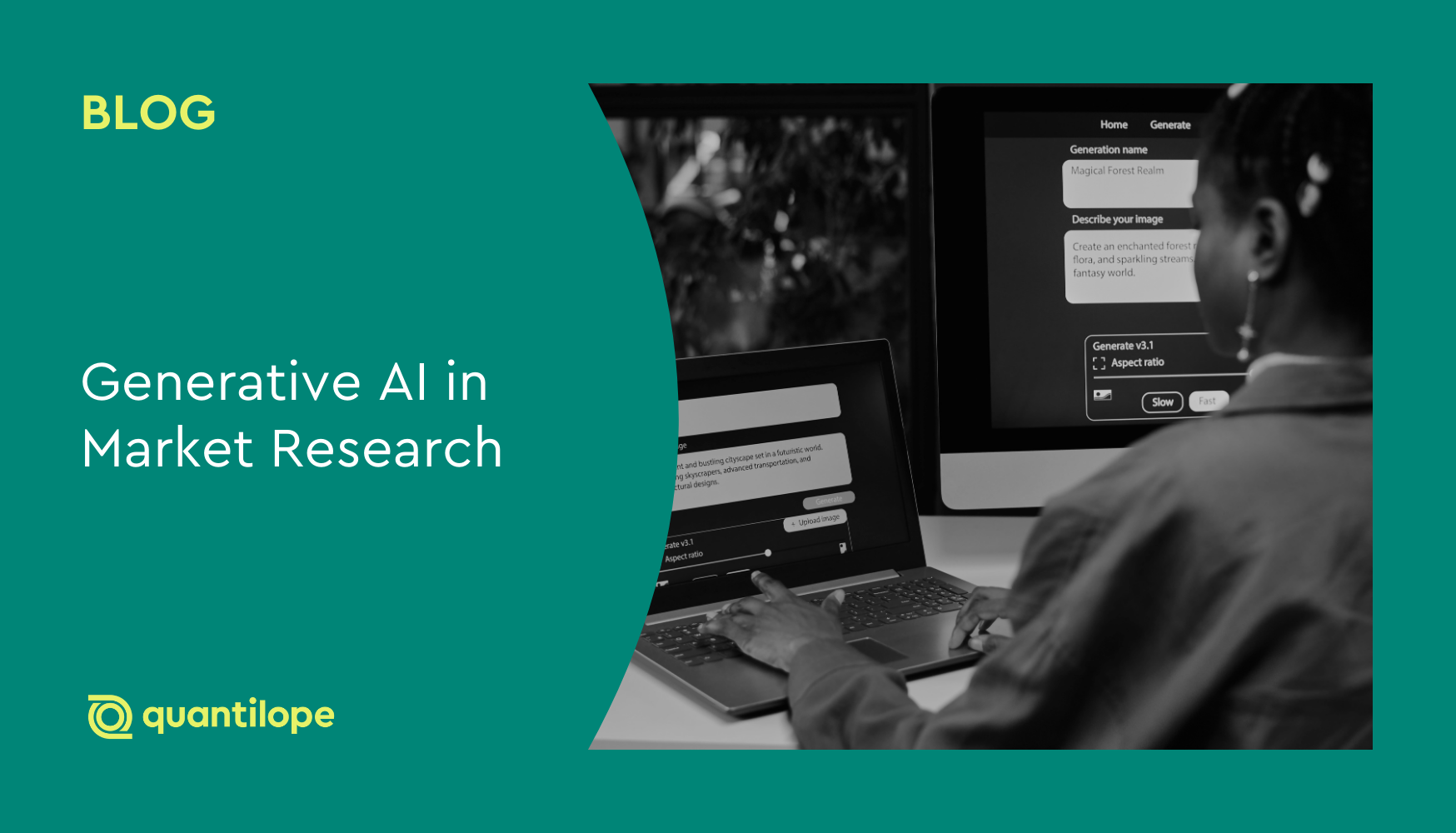Today’s businesses need to focus closely on the minds of their customers to anticipate their needs, tailor their offerings, and create products and services that truly resonate. This is where consumer panels come in handy, providing a direct way of reaching qualified consumers for specific research objectives.
Table of Contents:
- What are consumer panels?
-
The role of consumer panels in shaping business strategies
- Types of consumer panels
- Setting up consumer panels
- Challenges in consumer panel research
- Summarizing the power of consumer panels
What are consumer panels?
A consumer panel is a carefully-selected group of individuals who are able to represent a specific target market based on the needs of your marketing objectives. These panelists, also known as respondents or panel members, participate in various market research activities - such as online surveys, focus groups, in-depth interviews, or product testing, to share their opinions, preferences, and buying behaviors.
Consumer panels streamline the fielding process, removing the need to go out and source your own list of participants that may or may not qualify for your survey (e.g. must have a car, must have shopped for a certain product within the past 6 months, or any other criteria you may have). Panels maintain organized databases so that they have a wide ‘pool’ to pull from based on research needs. They can ensure a wide range of demographics are included through quota management (for instances where a sample that is balanced to represent a national sample), and they keep the incidence rate of your survey high (and therefore the cost low) by only sending to a group of respondents that are likely to qualify for your screening questions.
Panel providers will recruit panelists through various channels like online surveys and social media. Those who prove to provide high-quality answers and meet certain criteria are selected to participate in ongoing research needs. Panelists are essentially a group of trusted consumers to provide feedback that represents your target audience.
By leveraging consumer panels, businesses gain access to real-time feedback and a deeper understanding of their target market.
Back to Table of Contents
The role of consumer panels in shaping business strategies
Consumer panels play a pivotal role in shaping business strategies by providing trusted insights into consumer behavior, purchasing behavior, and decision-making processes.
This data can guide decision-making across various business functions:
Product development:
Trusted panelists can help businesses identify unmet needs, refine product features, test new product concepts, and create offerings that align with consumer preferences.Marketing and advertising:
Panelists can provide feedback on marketing messages and strategies, advertising campaigns, and brand positioning. Consumer panels are often used for testing ads and gauging brand awareness.Customer experience:
Panels can help businesses understand customer pain points, identify areas for improvement in the customer experience, and enhance overall satisfaction.Pricing:
Panels can help with pricing research, by providing insights into pricing sensitivities to identify optimal price points to generate the most revenue and perceived value among a group of consumers that represent those actually buying your products in the real world.Trend forecasting:
Panels can even help businesses stay ahead of the curve by identifying emerging trends, shifts in consumer behavior, and new market opportunities among your interested demographics.While the above types of research can be done without panels, you risk the quality of your data by not ensuring a consistent and representative sample of your target audience. One exception is businesses that opt to use their own list of respondents for market research - as these are often their current customers and can be utilized at a lower cost.
Back to Table of Contents
Types of consumer panels
There are various types of consumer panels, each with its own strengths and use cases:
Online panels:
These panels leverage the power of the internet to reach a wide audience and gather feedback quickly and efficiently through online surveys or questionnaires. They often involve long-term engagement with panelists, with incentives for their high-quality participation in research studies (cash incentives, gift cards, points, etc.). Typically online panels have ways of keeping track of their panelists based on their demographics, credentials, or past answering behavior, making it even easier for researchers to access these niche audiences.Ad hoc panels:
Ad hoc panels are formed for specific research projects and are dissolved once the project is completed.
For example, a food manufacturer exploring a new flavor of chips might create an ad hoc panel to test the chips concept and gather feedback on taste, packaging, and potential pricing. In this case, they may prioritize the speed and flexibility of ad-hoc panels over the precise demographic targeting of online panels.
As another example, a software company developing a new mobile app could assemble an ad hoc panel of users to test the app's functionality, usability, and overall experience. This feedback can help identify bugs and improve the app before launch.
Ad-hoc panels provide speed and flexibility in data collection, allowing companies to quickly gather targeted feedback from a relevant audience, even if exact demographics aren't a priority.
Qualitative panels:
Unlike quantitative panels, which rely on numerical data and closed-ended questions, qualitative panels focus on in-depth discussions and open-ended feedback to gain a deeper understanding of consumer motivations and attitudes. These panels are particularly valuable when exploring new concepts, testing advertising campaigns, or understanding the emotional connection consumers have with a brand.Qualitative panels allow researchers to explore complex topics, uncover hidden emotions, and gain insights into the "why" behind consumer choices. Platforms like quantilope's inColor leverage video to capture the nuances of facial expressions and emotions alongside verbal feedback. This adds a new layer of depth and richness to qualitative data, helping businesses better understand the emotional drivers behind consumer decisions.
Setting up consumer panels
Most researchers partner with panel providers who already have established criteria to access specific groups of respondents; so instead of spending valuable time and resources on recruiting and screening participants, researchers can tap into a panel provider's pre-existing pool of qualified respondents, which allows them to reach all of the consumers they need, often in under a week.
Researchers provide the panel team with a detailed brief, outlining their desired sample size, demographic quotas, and specific screening criteria. This might include factors like age, gender, income, geographic location, shopping habits, past purchases, or brand awareness levels. The panel provider then utilizes their expertise and resources to identify and recruit the most suitable panel members who meet these criteria. During this setup, researchers and panel providers will also discuss respondent incentives, cost per interview (CPI), and timing expectations for the research project.
Partnering with a panel provider offers a convenient and efficient way to access a pre-screened and qualified group of respondents, saving time and resources while setting up your study. This allows researchers to focus on designing impactful research studies and extracting actionable insights that can inform strategic decision-making.
Back to Table of Contents
Challenges in consumer panel research
Consumer panels provide quick, trusted consumer insights, but there are still a few things to keep in mind when leveraging this type of resource.
Privacy concerns:
When using panels, you’ll need to check how they handle privacy concerns to protect panelists' personal data. Most organizations have robust security measures in place and must be transparent about how data is collected, stored, and used. When using a panel provider, you’ll need to ensure you’re on the same page about these data privacy details.
Cost:
Maintaining or using a panel can be costly, involving expenses for recruitment, incentives, software, and ongoing management. However, the cost of consumer research panels is often justified by the speed and quality of responses.
Quality:
While consumer panels offer quick insights, consumer panel data quality can vary depending on your provider. Some panels may have stricter recruitment criteria and quality control measures, resulting in more reliable data. It's crucial to research and select a reputable provider who prioritizes data accuracy and integrity. Factors like panel size, recruitment methods, and incentive structures can all influence the quality of final responses.
Back to Table of Contents
Summarizing the power of consumer panels
Consumer panels offer businesses a direct line to their target audience, providing valuable, real-time feedback. This trusted source of consumer insights empowers companies to make informed decisions, refine products and services, and ultimately foster long-term success.
quantilope's Consumer Intelligence Platform is panel agnostic, giving you the flexibility to choose any panel provider that best suits your research needs, or even leverage your own customer list.
To learn more about consumer panel research with quantilope’s panel agnostic platform, get in touch below!



.png)
